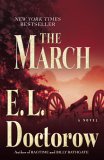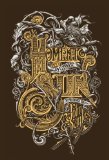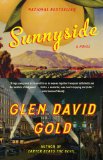Summary | Excerpt | Reading Guide | Reviews | Beyond the book | Read-Alikes | Genres & Themes | Author Bio

Stunningly renders the countless lives swept up in the violence of a country at war with itself. The "Great March" in E. L. Doctorow's hands becomes something more – a floating world, a nomadic consciousness, and an unforgettable reading experience with awesome relevance to our own times.
In 1864, after Union general William Tecumseh Sherman burned Atlanta, he
marched his sixty thousand troops east through Georgia to the sea, and
then up into the Carolinas. The army fought off Confederate forces and
lived off the land, pillaging the Southern plantations, taking cattle
and crops for their own, demolishing cities, and accumulating a
borne-along population of freed blacks and white refugees until all
that remained was the dangerous transient life of the uprooted, the
dispossessed, and the triumphant. Only a master novelist could so
powerfully and compassionately render the lives of those who marched.
The author of Ragtime, City of God, and The Book of Daniel has given
us a magisterial work with an enormous cast of unforgettable
characters–white and black, men, women, and children, unionists and
rebels, generals and privates, freed slaves and slave owners. At the
center is General Sherman himself; a beautiful freed slave girl named
Pearl; a Union regimental surgeon, Colonel Sartorius; Emily Thompson,
the dispossessed daughter of a Southern judge; and Arly and Will, two
misfit soldiers.
Almost hypnotic in its narrative drive, The March stunningly
renders the countless lives swept up in the violence of a country at
war with itself. The great march in E. L. Doctorow's hands becomes
something more–a floating world, a nomadic consciousness, and an
unforgettable reading experience with awesome relevance to our own
times.
Chapter 1
I
At five in the morning someone banging on the door and shouting, her husband, John, leaping out of bed, grabbing his rifle, and Roscoe at the same time roused from the backhouse, his bare feet pounding: Mattie hurriedly pulled on her robe, her mind prepared for the alarm of war, but the heart stricken that it would finally have come, and down the stairs she flew to see through the open door in the lamplight, at the steps of the portico, the two horses, steam rising from their flanks, their heads lifting, their eyes wild, the driver a young darkie with rounded shoulders, showing stolid patience even in this, and the woman standing in her carriage no one but her aunt Letitia Pettibone of McDonough, her elderly face drawn in anguish, her hair a straggled mess, this woman of such fine grooming, this dowager who practically ruled the season in Atlanta standing up in the equipage like some ...
Sherman's memory has been much reviled over the years, particularly in the
Southern states. As the man who led the infamous "March
to the Sea" and solved the problem of the hostile Plains Indians by advising
that the buffalo be killed off - thus destroying the way of life for the
Plains Indians, it's easy to see why. However, it would seem that he was
no lover of war - in fact, in the
early days of the Civil war he fell into a depression so severe that he was
relieved of his command and rumors spread of his insanity. Perhaps he had
the foresight to see that the South would inevitably lose, but that the North
would only be able to win at a terrible cost but that cost was necessary if
America was to stay as one country - and, indeed, it appears that he did not
come into his own as a commander until the powers that be recognized that
extreme measures would be required to win the war.
His position
(shared by Grant) is clearly stated in a number of historical records including
his letter to the Mayor of Atlanta:
"You cannot qualify war in harsher terms than I will. War is cruelty, and you cannot refine it; and those who brought war into our country deserve all the curses and maledictions a people can pour out. I know I had no hand in making this war, and I know I will make more sacrifices to-day than any of you to secure peace. But you cannot have peace and a division of our country. If the United States submits to a division now, it will not stop, but will go on until we reap the fate of Mexico, which is eternal war."
When researching the background to The March, the thing that struck
me most were the photographs of the Civil War; or to be more specific, the fact
that the war is so recent that it is possible to have a photographic record of
it!
With the Civil War such a core part of the American psyche, you would have
thought that a high-profile fictional interpretation would raise controversy,
but in fact, the mainstream reviewers are overwhelmingly in favor of The
March, with a few minor nitpicks here and there. I'm not sufficiently familiar with Civil War history to cast
an opinion on whether Sherman has been accurately portrayed or not, but it seems
that most who know these things, feel that Doctorow's representation of him as a
moody, complex character of varying ability is well done. Having said that, although Sherman is
obviously an essential part of the tale, he is just one of a large cast of,
mostly fictional, characters from all walks of live - characters that most
reviewers feel have been well-drawn, although one questioned the modern day bias
of the groups as a whole (as a general rule, Doctorow's freed slaves tend to be honorable fellows,
his white Southern men are corrupt and their women a tad clueless).
Reviewers also compliment Doctorow on his familiarity with the military
logistics and tactics of the period and his ability to portray the traveling
army in all its gory sights, sounds and smells.
"It is Mr. Doctorow's achievement in
these pages that in recounting
Sherman's march, he manages to weld
the personal and the mythic into a
thrilling and poignant story. He not
only conveys the consequences of
that campaign for soldiers and
civilians in harrowingly intimate
detail, but also creates an
Iliad-like portrait of war as a
primeval human affliction - "not war
as adventure, nor war for a solemn
cause," but "war at its purest, a
mindless mass rage severed from any
cause, ideal, or moral principle," a
"characterless entanglement of
brainless forces" as God's answer
"to the human presumption."
- Michiko Kakutani, The New York Times.
..continued
Full Review
(1000 words)
This review is available to non-members for a limited time. For full access,
become a member today.
(Reviewed by BookBrowse Review Team).
The Savannah Campaign, more commonly known as The March to the Sea, took place between November 15th 1864, when Sherman's 62,000 troops left the captured city of Atlanta, and ended on December 22nd with the capture of Savannah. Sherman and Grant were in agreement that the way to end the war was to inflict a devastating defeat that would destroy not only the South strategically but break them psychologically and economically as well. To that end Sherman initiated a "scorched earth" policy throughout the march (which had the added advantage that it reduced the need for traditional supply lines).
The following is edited from his orders issued on November 9th.
IV. The army will forage liberally on the country ...
This "beyond the book" feature is available to non-members for a limited time. Join today for full access.

If you liked The March, try these:

by John Sayles
Published 2012
It's 1897. Gold has been discovered in the Yukon. New York is under the sway of Hearst and Pulitzer. And in a few months, an American battleship will explode in a Cuban harbor, plunging the U.S. into war... This is history rediscovered through the lives of the people who made it happen.

by Glen David Gold
Published 2010
A novel with Charlie Chaplin at its center, capturing the moment when American capitalism, a world at war, and the emerging mecca of Hollywood intersect to spawn an enduring culture of celebrity.





